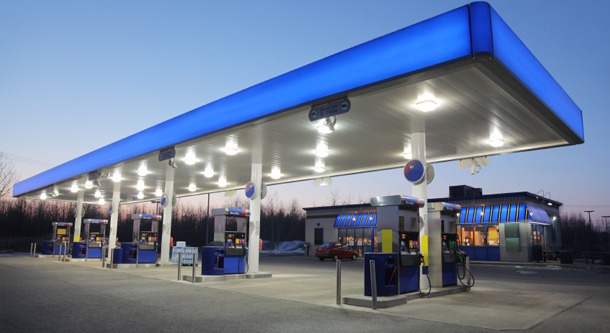
What you need to know: Price spikes on consumers are profit spikes for oil companies, and they’re overwhelmingly caused by refiners not backfilling supplies when they go down for maintenance. This first-in-the-nation proposal would require refiners to maintain minimum supply inventories, which would help prevent price spikes and save Californians hundreds of millions of dollars every year.
August 16, 2024 - SACRAMENTO — The state has found that, when refiners limit gasoline supplies, prices spike at the pump and create massive profits for Big Oil. On Thursday, Governor Gavin Newsom announced a new, first-in-the-nation proposal to further prevent price spikes and save Californians money.
The proposal would authorize the California Energy Commission (CEC) to require that petroleum refiners maintain a minimum fuel reserve to avoid supply shortages that create higher prices for consumers. If this proposal had been in effect in 2023, Californians would’ve saved upwards of $650 million in gas costs due to refiners’ price spikes.
The CEC also found that, in 2023, there were 63 days of California refiners maintaining less than 15 days of gas supply — driving up prices. This proposal would help ensure that the industry behaves responsibly and plans ahead to protect consumers from price spikes.
“Price spikes at the pump are profit spikes for Big Oil. Refiners should be required to plan ahead and backfill supplies to keep prices stable, instead of playing games to earn even more profits. By making refiners act responsibly and maintain a gas reserve, Californians would save money at the pump every year.”
Governor Gavin Newsom
The state’s new oil & gas accountability tools have helped mitigate price spikes and held Big Oil accountable, with prices significantly lower than at this time last year and the year before. This summer, Californians spent an estimated $728 million less on gasoline than the same period last year. Today’s announced proposal would further protect consumers at the pump and help stabilize the market for the long-term.
“The data is clear: oil refiners have been racking up profits by planning maintenance that reduces supply during our busy driving seasons. The Governor’s proposal gives us new tools to require refiners to plan responsibly and prevent price gouging during maintenance.” — Tai Milder, Director of the Division of Petroleum Market Oversight for the CEC
What the proposal would do
- Obligate California’s petroleum refiners to demonstrate resupply plans and arrangements to the CEC that are adequate to address the loss in production from refinery maintenance.
- Authorize the CEC to require petroleum refiners to maintain enough fuel inventory to stabilize fuel supply.
- Impose penalties on refiners who fail to follow these requirements.
How we got here
- Following gasoline price spikes in 2022, Governor Newsom called for a special session and signed into law a package of reforms holding Big Oil accountable.
- California’s new watchdog found that higher gasoline prices were caused by suspicious market transactions, refinery maintenance without properly preparing for it, and more.
- Earlier this year, the watchdog sent Governor Newsom a letter outlining specific proposals to reform California’s gasoline spot market, which included a minimum inventory requirement to prevent price spikes due to lack of stable supply.
- The state’s gasoline price watchdog also found that, in 2023, gasoline prices spiked largely due to refineries going offline without adequately planning to backfill supplies, which caused refining margins to spike as spot and retail prices jumped — indicating that refinery margins made up the largest proportion of the price spikes between July and September 2023.
-
Other countries have taken similar actions
- Australia enacted the Fuel Security Act, which has two major components: a minimum stockholding obligation and a fuel security services payment. Implemented in 2024, the minimum stockholding obligation requires major fuel refiners to hold 24 days of gasoline and 20 days of diesel fuel.
- Japan passed the Oil Stockpiling Act to ensure a stable supply of oil, requiring both the government and private sector to maintain reserves of crude oil and other finished petroleum products.
The European Union adopted an Oil Stock Directive that requires EU countries to maintain emergency stocks of crude oil and petroleum products equal to at least 90 days of net imports or 61 days of consumption, whichever is higher.
Source: Office of the Governor








